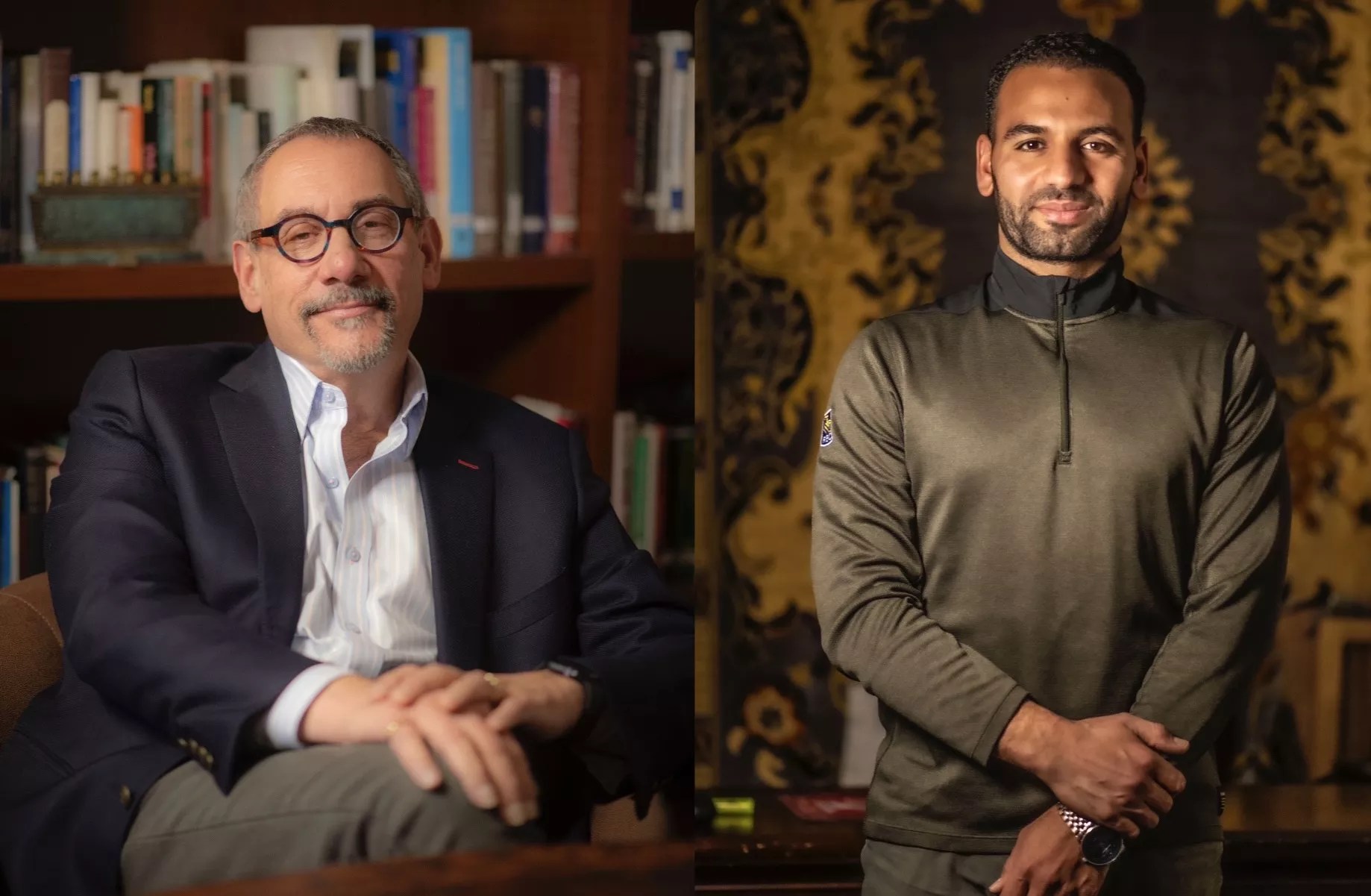
Evan Semón

Audio By Carbonatix
“We need people to feel safe.”
In Denver, this has been the sentiment for both Jews and Muslims over the past twelve days as scores of Israelis and Palestinians continue to lose their lives in the Israel-Hamas war, and tensions remain heightened between the two religious groups.
With no immediate end to the conflict in sight, Jewish and Muslim leaders in the Mile High City have turned their attention to faith and their flocks in hopes of having some sort of impact on their respective communities.
On the surface, the two groups seem further apart than ever before. But interviews with Rabbi Joseph R. Black, of the Temple Emanuel synagogue, and Imam Muhammad Kolila, of the Masjid Al-Shuhada mosque (also known as the Downtown Denver Islamic Center) show that the two sides actually have a lot in common when it comes to community fears, safety and counseling their congregations.
For instance, each has been dealing with a rise in anti-Semitic and Islamophobic rhetoric and incidents since the October 7 attacks by Hamas in Israel, along with widespread concerns that Denverites will be targeted.
“Some parents are saying, ‘We’re not going to be able to bring our kids to the mosque, they are scared,'” Kolila elaborates. “And some members of the community [are asking] the wives to take off [their headscarves and hijabs].”
The concerns are similar for Denver Jews. “A member of our congregation [said] their son was going to run an errand,” Black says. “And he goes to the Jewish Day School, and he was wearing a yarmulke, a kippah, and he said, ‘I’ll go get some groceries, Mom. Should I take off my yarmulke?'”
Another incident involved a Jewish resident wearing a T-shirt that he’d gotten in Israel. “Somebody screamed at him and said, ‘You’re the cause of [the violence]’ and used a lot of obscenities,'” the rabbi recounts.
According to the Denver Police Department, at least three “bias-motivated crimes” have been reported by city residents since the Hamas terror strike. All appear to be anti-Muslim in nature, but Black says there have also been countless threats made against him and other members of the Jewish community since the attacks.
“I’ve received hate mail; we as a congregation have received hate mail,” Black says. “My people feel shaken to the core.”
According to Kolila, local Muslims feel the exact same way. “It’s definitely been weighing heavy on everyone,” he says. “They want to be safe. They hope to be safe themselves, because they are scared. Especially our female members, who are more visible – their identities more visible – because they wear headscarf, they wear hijab.”
On October 10, Denver police received a report of criminal mischief related to a vehicle “where a racially directed note was left and the car was damaged,” a DPD spokesperson says. The other two anti-Muslim cases are being investigated for “harassment and threats.”
“Today [October 17] I received an email from one of the parents that said, ‘I wouldn’t bring both of my children [to the mosque], both of my boys, because I’m concerned about what’s going on right now – especially with what’s happened in Chicago, Illinois,'” Kolila says, referring to a six-year-old Palestinian-American boy who was stabbed to death by his family’s landlord on October 14 “due to them being Muslim,” according to police.
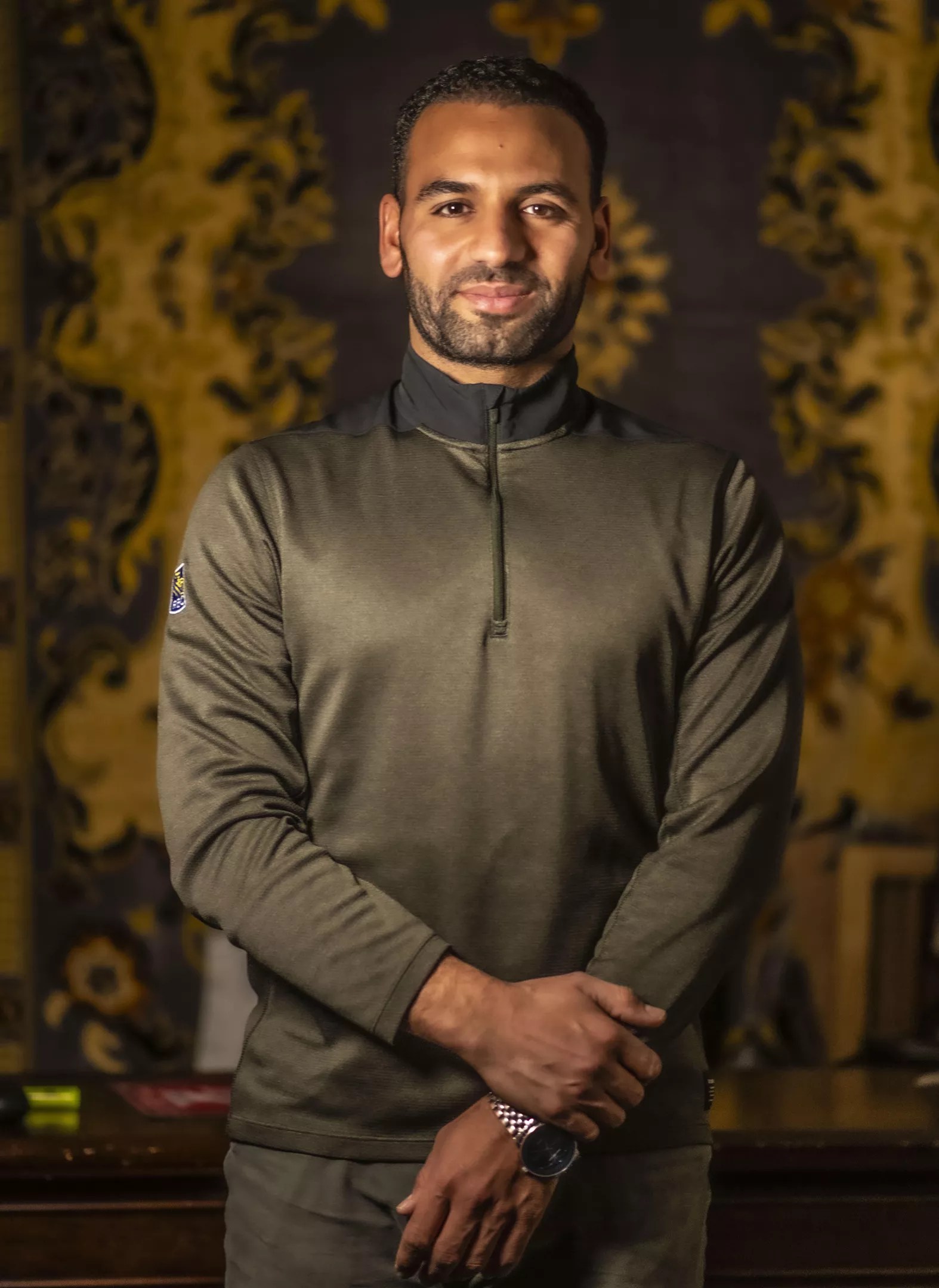
Imam Muhammad Kolila of the Masjid Al-Shuhada mosque.
Evan Semón Photography
“The community has been seeing a rise in Islamophobia,” Kolila says of his Denver followers. “We had a call from a random person, even called the police about this. He called and said, ‘I’d like to order a suicide bomber from you guys.’ He called the mosque. And also, you see a lot of Islamophobic rhetoric and a lot of trauma from many of our children and our teenagers and our students and our parents that have families. We see a potential post-9/11 [environment]. That’s been the basic conversation here. So it’s coming home. It’s coming to their houses, coming to the children, coming to the teenagers – middle school and high school and average school kids – who just feel sad for losses and having a sense of humanity, and at the same time being bullied. To call them [names] and go, ‘Do you have a bomb in your bag?’ So we see a lot of rhetoric going on now, and a potential [for] and also a significant rise of Islamophobia.”
Black, who came here from a New Mexico synagogue in 2010, says he hears similar things from people who attend Temple Emanuel, which has about 2,000 member households, and in Denver’s Jewish community as a whole, especially when it comes to trauma and the concerns people have.
“I think there is a large sense of sadness, fear and anticipation for what is yet to come,” he tells Westword. “And there’s a lot of trauma. This induces trauma in many people. We have members who have friends and family in Israel; there’s not one member of this community who does not know someone who is either directly touched or knows someone who’s directly touched by this horrific act of terror that shook us to our very core. I’m spending a lot of time talking to people about how they can process this – addressing their fears, addressing their anger, addressing their just sense of futility and shock.”
Black adds, “This is not just about Israel; this is about we as American Jews feeling safe or not. So I hope that we can feel safe. I also hope that we can open up opportunities to learn, to study together, to share both our joys and our fears, and to have a sense of perspective that is not based on sound bites, social media, but a real, true understanding of history. That would be something that I pray for.”
The rise in anti-Islamic and anti-Jewish hatred “is parallel,” Black says. “And that’s the irony. That the bigotry and the hatred and the rise and fascism that we’re seeing in this country feed fear and hatred. There are people who thrive on stirring up hatred to either achieve their own political or whatever nefarious ends, or who strive to benefit from the cast that they see – their own hatred – and use it as an opportunity.”
Black and Kolila acknowledge that it can be hard to understand the other community’s perspective without fully knowing the history and context of what’s been going on between Israel and Palestine over the past century. They might not agree on who is at fault, but they agree on the importance of knowing the background.
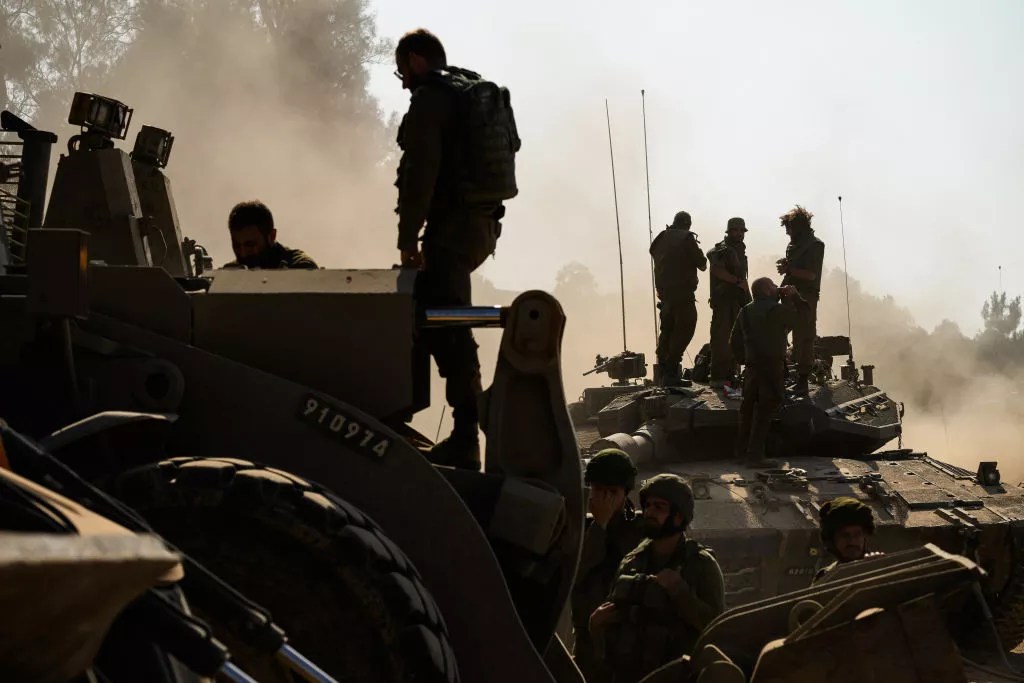
Soldiers in a holding area outside Kibbutz Be’eri on October 14 in Be’eri, Israel; over 110 residents of the small community were killed during the attack on October 7.
Leon Neal/Getty Images
“People need to understand the context,” says Kolila, who came here from Egypt six years ago. “This is not something coming out of the blue. … When you talk about something that you’re distant from, of course you’re going to be wrong in some ways, and you’re going to be misled in some ways.”
Black agrees. “We’re seeing on social media a lot of people blaming Israel without knowing the facts, without knowing the background – easily buying into the propaganda ways that are coming through social media,” he says. “It’s very disheartening. People who I once was friends with on social media I’ve had to cut off; the amount of ignorant vitriol and frankly blatant anti-Semitism that is coming through is very, very disturbing.”
“There is no two sides of the story,” Kolila adds. “I think all of the humans agree, shedding blood is something horrible, something immoral, something that’s abhorrent. And then adding to this, the impact in our community and seeing the parents and seeing our children traumatized and afraid and scared – or even being called names, simply because you think this [Israel’s response] is wrong, which is a human basic [instinct]. It’s a challenge. It’s a hard time.”
When asked about Israel and Palestine’s cycle of violence, Black responds: “I don’t like the term. I think it is a term that implies that there are two equal sides on this, and they’re not. When Israel is attacked, Israel responds to that, because that’s the only way to prevent further attacks. Israel has built barriers, yes. And they’re ugly. I’ve been to Israel many times; I go often. I have family there, I have friends there – I love Israel. And I’ve also been to the West Bank. And I think the walls are horrible and ugly. And I think the blockade of Gaza is tragic for the Palestinian people in Gaza. But this is not ‘Israel’s attacking Gaza and then Gaza is attacking back.’ Israel is defending herself. Gaza is attacking Israel. So the words ‘cycle of violence,’ or to use the word ‘militant,’ for example, to talk about [Hamas] – these aren’t militants. These are terrorists whose goal was to massacre babies.That’s who we’re dealing with right now. So you can’t reason with those people. The only thing you can do is try to protect your own people. And the Israeli government failed in doing that. The army failed, and there’s going to be a huge inquiry as to why that happened. This should never have happened. And it was a failure of leadership as a failure of the military – and that is going to come to light, too. But this is not, it’s not equal in any way, shape or form.”
Kolila argues that as men of faith, he and Black should be denouncing not just Hamas, but Israel, too, for carrying out military strikes on places where innocent civilians are said to be located.
“No human who has the basics of humanity would think that’s morally and ethically and religiously correct, what’s going on right now,” Kolila says. “It’s wrong. It’s barbaric. The State of Israel, by its own actions now, I would say, is pushing people to be anti-Semitic. … I would really appeal to them that they need to stop, and everyone use your resources to stop [the bloodshed]. Because we are in the right course of history. And if we do not stop it, will be blamed for it. If you are religious, a religious person, you will be blamed for it as a human being. God would question you; we have questioning and accountability, in a sense. So we believe that if I do stop wrong, I will be accountable. Because I’m not seeking justice. I’m not trying to seek justice. And the people who are not religious, your humanity is at stake if you allow the shed of blood to continue.”
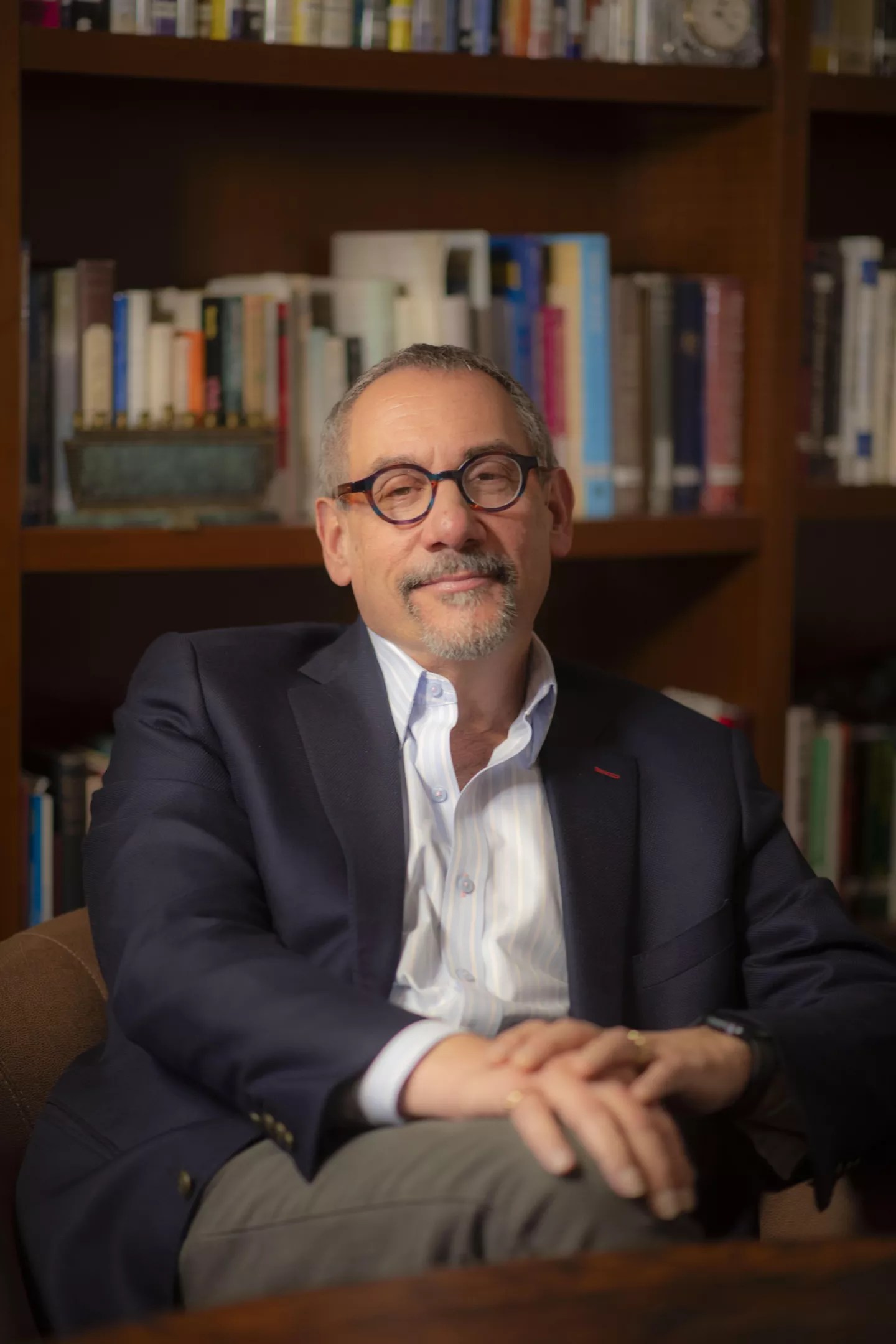
Rabbi Joseph R. Black is the senior rabbi at Temple Emanuel.
Evan Semón Photography
Black says the current situation in Israel and the Gaza Strip just isn’t that simple: “I wish I could agree with [Kolila]. I grieve every life that’s lost. Doesn’t matter, we’re all created in the image of God. But there are times when you have no choice but to go to war; World War II was a great example. My mother was born in Leipzig, Germany, in 1926. Her parents fled from anti-Semitic pogroms in the Ukraine in the early twentieth century and moved to Germany because it was a civilized country. They fled Germany and came to America to escape anti-Semitism. Sometimes there is evil in the world that you have to confront. And sometimes you can’t confront evil on your own terms. I certainly grieve the loss of life – it’s tragic. But when somebody’s trying to kill me, or my children, or my loved ones, I’m going to defend myself. And I’m going to make sure that they can’t do it again. And that is Israel’s job. So I don’t disagree with him that the loss of life is tragic. I condemn Hamas for putting innocent civilians in harm’s way.”
As does Kolila. “That’s not a hard question. Any targeting of civilians…you have this from the time of the prophet, that anytime we have instructions – do not target women, children; do not target clergypeople; do not target civilians,” he says. But he also feels that people are ignoring the Palestinian side and his people’s history, and wonders when folks will start condemning Israel, if at all.
“The language should be balanced here,” Kolila says. “We should be fair and honest with ourselves. Why I’m ignoring sixteen years of blocking? Why I’m ignoring like 50 percent of the people have seen nothing but war after a war after a war after a war? Who should be blamed here? Is it the person that can fix, or the person that has nothing?”
The Denver imam adds, “You put the people in a sardine can with no hope. So for them, you didn’t create any help. What have you done to them? What is the fair solution? What is the just solution? Do you want to keep occupying people for more than 75 years? And do you think they’re gonna be happy? Why would any person – whether Israeli, or Palestinian, or American or any human – be happy by controlling their movements, by demolishing their houses, by being blocked? And then whenever you want to cut basics, basics of life, you just go ahead and do it. ‘I’m going to cut water, I’m going to cut food, I’m going to cut electricity, I’m going to get sewage system. I’m going to just make you live in a primitive life.’ And even primitive people have access to those things and places – you’re gonna have any access. So I would call everyone, seek justice and be honest about what is fair and just for everyone, given the historical backgrounds and the historical context of the situation.”
Black, too, feels history and context are very important when choosing sides and speaking about the Israel-Hamas war. He just views things differently.
“First, I’m going to make a distinction between Hamas, Hezbollah and the Palestinian people, because I think that’s really important,” Black says. “This is not about Palestinians and Israelis. This is about terror groups funded by Iran, who have committed despicable acts of horror, not only against the State of Israel, but targeting specifically Jews. … I am a strong proponent of a two-state solution. I do believe that the Palestinian people need to have their own state and that they should be partners with Israel. I think what’s happening in Gaza – and I don’t want to go into the politics and the history of it – but you know, when the Palestinian Authority was brutally murdered by Hamas and they took over and created this mini-Islamic caliphate where all of the resources that they were given to help rebuild Gaza, to help create an infrastructure, were used as weapons and terror tunnels.”
Black adds, “I have been very vocal in my criticism of the previous government in Israel before the unity government, but also know that now that Israel has been so brutally and viciously attacked, I fully support the State of Israel. I fully support this operation to get rid of Hamas, because they’ve showed us who they are. And then the next time they come, it’s not gonna be any better. So it’s tragic. And I feel horrible for those caught up in the horror of war. But this is something Hamas brought upon itself.”
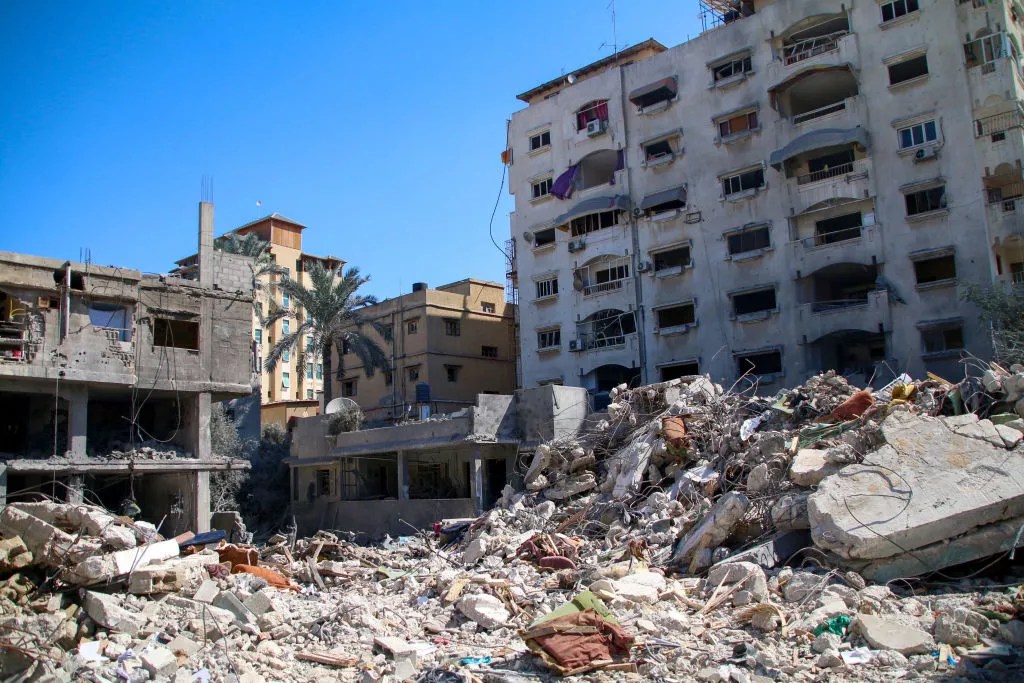
Palestinian citizens inspect damage to their homes caused by Israeli airstrikes on October 15, 2023 in Khan Younis, Gaza.
Ahmad Hasaballah/Getty Images
Kolila agrees that Hamas is solely to blame for the initial atrocities in Israel. But he says that he and mosque members feel it’s time to also start holding the Israelis accountable for what’s going on.
“I think right now, what happened happened,” Kolila says. “People denounced it, it’s over. We’re talking now about saving lives. Why people keep dragging this out and things like that? People denounced it. We denounced it enough. We’re talking about shedding the blood. We’re talking about shedding the blood and saving lives. … We need to stop that shed of blood.”
But again, Black says the situation is not as simple as it appears.
“If there’s someone on your front doorstep who’s trying to break into your house, you are going to make sure they don’t break into your house,” he explains. “If this was Texas, and Mexico was lobbing missiles at Texas every day, you would make sure that they don’t get across the border. … This is not about Palestinian people, this is about an oppressed Palestinian people by their own leadership – Hamas. When Israel sixteen years ago gave Gaza back to the Palestinians, it was the hope that we could live peacefully side by side. Hamas came in and murdered and massacred the PA, threw them off the top of buildings and took over. So it’s tragic. But that blockade is not the fault of Israel; it’s the fault of Hamas.”
Describing the loss of civilian lives on both sides, Black says: “Hamas set the terms of this conflict. And Hamas will not respond to anything other than brute force, and it’s tragic; I hate the loss of Palestinian lives this is going to cause and is causing; I hate the loss of more Israeli lives this caused and is causing; I hate the grief and the fear and the trauma and the terror that it’s causing around the world; I hate the rise in anti-Semitism and anti-Islamistism that is happening. … And I grieve for every life. But sometimes you have no choice. If someone is trying to kill you, you can’t roll over. And that’s unfortunately the dilemma that Israel is faced with. If Israel does nothing, then Israel is in danger. If Israel tries to defeat its enemies and rescue its hostages, putting people in danger. And the world may not like it, but it has every right and every responsibility to do so. Now, will there be civilian casualties in Gaza? Absolutely. Tragically. Horrifically. I condemn Hamas for that because they have set their bases up in the midst of civilian areas. In hospitals, in schools. … So will there be civilians caught in the crossfire? Unfortunately, tragically, horrifically, yes. But I don’t condemn Israel for what Hamas is forcing it to do.”
While Black and Kolila don’t agree on many things, the two of them share an appreciation for each other’s faiths and beliefs in a way that’s seldom seen these days.
“We as Muslims, we have a lot of Jewish community friends,” Kolila says. “We had a lot of rabbis come here [to the mosque], and I went to many synagogues. Actually, I was in a conversation today with a rabbi. And it was very supportive and was like, ‘What can I do for you guys?'”
That rabbi, it turns out, was none other than Black.
“I consider him to be a friend,” Black says of Kolila. “I’m not saying I want to agree with everybody; I’m sure Imam Kolila and I see things very differently. However, I see him as a good man, a good human being, and someone who loves God. And I hope he sees me the same way.”